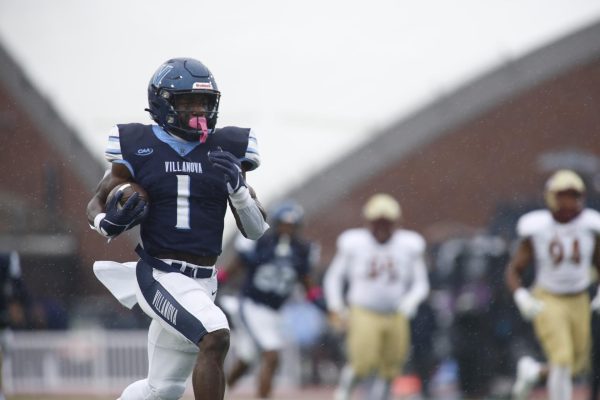Masters’ greats write another chapter in history
April 14, 2005
There are few words in the English language that can do justice to the majesty and the beauty of Augusta National Golf Club. The kind of panorama that only heaven itself can rival and the hanging gardens of Babylon could have competed with.
The grass is perfect; the lawn for the gods, with fairways so soft people feel the need to take off their shoes before walking on them. The backdrop is impeccable, with azaleas and magnolias that, when caught by the sun perfectly, the petals seem as though God Himself touched them.
There are no cart paths. There are no billboards. There are no power lines or obstructions. There is just golf: beautiful, perfect and peaceful.
The same can be said about the history and mystique of the Masters Tournament, which, this past weekend, wrote another chapter in its long story of memories.
Last year it was Phil Mickelson, whose Easter gift was a Green Jacket and a huge weight lifted off his shoulders. Mickelson wrote his chapter, and we were waiting a decade for him to finish it. With a fifteen foot birdie putt on the 18th hole, the final period was placed in a Masters no one will ever forget.
This year the main character was Tiger Woods, who looked to lift his own weight off his shoulders by ending a Majors drought that was uncharacteristic for the young champion.
But another major-less player, Chris DiMarco, had his own story to write. After two and a half rounds of brilliant golf, DiMarco eventually lost to the greatest player of our generation. DiMarco’s story may remain incomplete, but the book will never forget his tenacity and heart.
Woods’ resurgence on Sunday morning proved that the champion was back in top form. A thrilling, edge-of-your-seat chip into sixteen will go down as one of the greatest shots in the history of this majestic tournament. After two years of Major-less golf, Wood became more focused in his quest to match Jack Nicklaus at the top of golf’s Major list.
Few golfers can lay claim to one Major Championship, let alone nine. But Tiger Woods, at age 29, is already halfway to Nicklaus’ record of 18. It’s only taken a few years to get this far, and Woods, by the time he’s 35, could have the undisputed title of “greatest” next to his name.
But as Woods continued his pursuit of Nicklaus’ record, Nickalus himself ended his own story of Masters immortality. After forty-five appearances, countless records and six Green Jackets, the Golden Bear was done. The 65-year-old Nicklaus, whose golf game has seen better days, decided a quiet, low-key exit was plenty for him to say goodbye to the course and the fans that have brought him so much happiness for the past four and a half decades.
Jack Nicklaus may have taken his last swing at Augusta, but his legacy will never die. His six Green Jackets will always hang neatly in the closet of Masters history. His eagle-birdie-birdie streak on the 15th, 16th and 17th holes at the 1986 Masters will always be remembered as one of the highlights of Augusta’s long legacy of exciting, mind-boggling golf. The video of Nicklaus’ putt on seventeen with his look of jubilant focus as the ball drains into the hole will be shown for years to come. While our generation may have been too young to really witness that great day, the memories have immortalized it as one of the greatest moments in sports history.
But the days of Nicklaus, Palmer and Player are now past us. The sport of golf, for a moment, seemed hopeless.
In a time when golf’s aura was waning, when the majesty of Augusta National was questioned and when the sport of golf was fading from the memories of so many sports fans, two players and one tournament came to its rescue.
In the midst of the atmosphere and beauty of a place like Augusta, Tiger Woods and Chris DiMarco set the tone for a season of golf that should be one to remember.
This year’s chapter of the Masters’ tournament has been written, and the author once again commanded the script beautifully.
As the book carries on, the elegant history of the Masters continues. It is up to our generation – the generation of the Woods – to maintain that history and continue writing the stories until, like the generation of Nicklaus and Palmer before us, it comes time for us to say goodbye to the game we love so dearly.
I think the game is pretty good hands.










